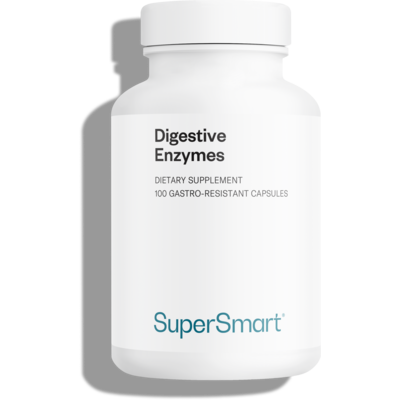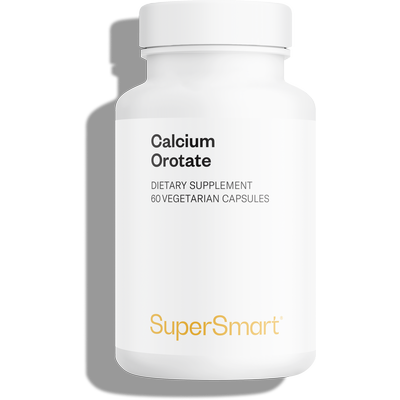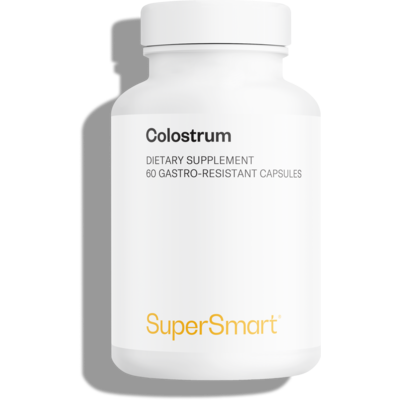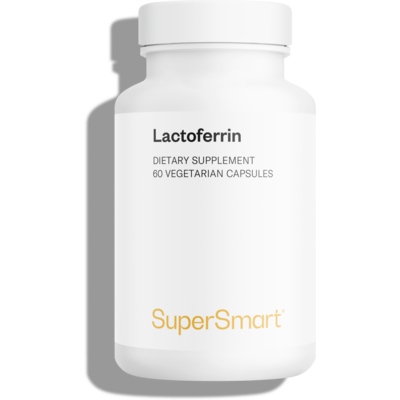Is milk good for your health?
Praised for half a century and then disparaged for several years, is milk actually good for health? What are its benefits and downsides? Does it cause digestive problems? Read on for all the answers.
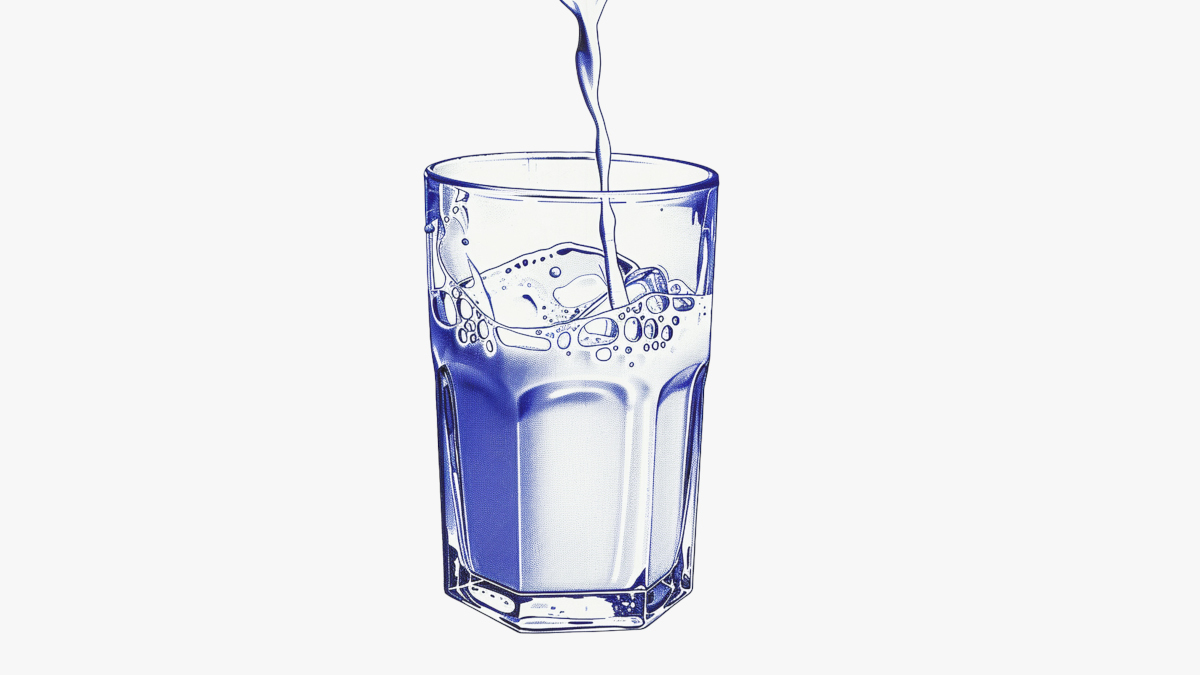
Milk: a nutrient-rich food
Milk is naturally produced by all female mammals as food for their young, and as such, contains everything needed for early growth. It is thus particularly rich in nutrients (1).
Calcium, magnesium, vitamins
The main nutrients in milk are: calcium, magnesium and vitamins. 100ml of cow’s milk provides on average 120mg of calcium (ie 10%-15% of the RDA for children and adults), 11mg of magnesium (3% of the RDA for a woman) as well as 1 IU of vitamin D and 0.5mcg of vitamin B12 (2).
Milk is rich in protein
Milk also contains on average 3.4 g of protein per 100ml, including casein (which accounts for 80% of the protein in milk), lactoglobulin, lactalbumin, and lactoferrin (3). The latter (which is available as a supplement, for example, Lactoferrin) is rich in immunoglobulin and is one of the most active components in the first form of breast milk, colostrum, (also available in supplement form, such as the product Colostrum).
During the production of cheese, it’s casein that makes the milk curdle and it remains concentrated in the final product, while the other, soluble, proteins are eliminated in whey. That’s why cheese is so rich in protein (with around 20g-30g per 100g) (4).
Milk, sugars and fats
Milk also contains varying amounts of fat, with between 1g and 50g per 100 ml depending on the type of milk and farming method used. The lipids in milk have the particular feature of being 60% saturated fatty acids.
Finally, milk contains lactose, a carbohydrate specific to milk. Human breast milk is richer in lactose than cow’s milk, with an average of 60g and 45g per liter respectively (5).
Milk, growth, evolution
Brief history of milk consumption
Animal milk has only been consumed by humans since the birth of agriculture and domestication of cattle, around 10,000 years ago (out of 3 million years of human evolution).
However, since milk is a highly-perishable commodity, for thousands of years it was largely consumed by humans in the form of dairy products: cheese, butter, yogurts, fermented milk (6).
It was only in the 20th century, with wider availability of white goods, and a push by the dairy industry, that fresh, unprocessed, milk, became a major feature of the Western diet.
Milk: a key food for early growth
While breast milk is important for infant growth during the first months of life, mammals are ‘programd’ to quickly wean themselves off milk, and adopt their permanent diet.
So in many cases, the human body gradually stops producing a specific enzyme called lactase, necessary for proper digestion of lactose. Lactase breaks down lactose into two simpler sugars, glucose and galactose, which are easily absorbed by the gut (7).
When the body produces little or no lactase, all or part of the lactose remains intact in the gut, where its inadequate digestion leaves it subject to fermentation by bacteria, resulting in digestive problems.
In Europe, around 40% of adults have trouble digesting lactose, while in Asia, some studies suggest this figure is close to 100%!
Digestive issues: intolerance or allergy?
Poor lactose digestion causes a number of troublesome symptoms:
- bloating;
- flatulence;
- abdominal pain, sometimes acute;
- diarrhea.
All these digestive problems are a sign of lactose intolerance, rather than, as is commonly believed, an allergy to lactose which does not actually exist!
What does exist, however, is an allergy to the proteins in cow’s milk. It is usually only new-borns (around 1 in 40 babies) who are affected by this allergy which disappears around the age of 1 to 2 years. It’s worth noting that this type of allergy causes digestive symptoms similar to those of lactose intolerance, as well as skin reactions such as eczema (8).
Is milk good for you: your questions answered
Is drinking a liter of milk a day bad for your health?
For an adult, drinking a liter of milk a day is unlikely to pose any risk. Having said that, it’s neither particularly manageable nor useful.
Generally speaking, it’s better to simply listen to your body and drink what you need: if you have no problem consuming a large serving of milk at breakfast, then why not, but is a whole liter a day really necessary?
If you obtain enough calcium from your diet, or you take calcium supplements, then you can simply drink the amount of milk that suits you and that you can easily digest.
Does drinking milk make you put on weight?
No, drinking milk does not lead to weight gain, unless you only ever drink full-fat milk. Semi-skimmed milk is quite low in both calories (around 420kcal per liter) and fat (around 1.5g of fat per 100ml). However, milk contains sugar as well as fat, so it’s best to stick to reasonable quantities.
Cheese, on the other hand, contains 420kcal … per 100g! And with around 33% fat, it’s therefore more important to monitor your cheese intake rather than how much milk you drink!
Is milk good for adults?
Milk is neither good nor bad for adults. It’s only bad for those who can’t - or find it difficult to - digest it.
While it may be inappropriate to label milk as the perfect ‘miracle’ food, it’s also wrong to demonize it, at least for health reasons or its alleged harmful effects. Having said that, it’s important to avoid excess consumption, as we’ll now explore …
Drinking too much milk: consequences
While many studies have looked at the effects of excessive milk consumption, the results have been inconsistent and somewhat contradictory. It’s therefore difficult to list with any certainty the disadvantages of drinking too much milk.
However, it does seem that:
- A milk- or calcium-heavy diet may, according to some studies, promote breast and prostate cancer (11);
- As milk contains cholesterol, drinking too much could promote cardiovascular disease… especially if you lead a largely sedentary lifestyle and have other risk factors (12).
Regarding the risk of bone health and fractures, the research is generally contradictory: quite logically, many come out in favor of milk for providing calcium and vitamin D while others argue that drinking too much milk increases the risk of hip fractures in menopausal women.
As is often the case, the truth lies somewhere between the two: Drinking milk does not pose a risk to health as long as it’s consumed in moderation!
What’s the best kind of milk for adults?
The best milk for adults is the one they digest easily and like. If cow’s milk is your first choice and you have no problem digesting it, then enjoy it in moderation. If you prefer soya or oat milk (or any other plant milk) for its taste, ease of digestion or environmental reasons, then enjoy that! You could also try the benefits of coconut milk.
Again, as is often the case, the most important thing is to listen to your body: if you experience abdominal pain and diarrhea within 30 minutes to two hours of consuming animal-source milk, then you may be suffering from lactose intolerance.
If so, you can start by eliminating dairy products for a few weeks before gradually reintroducing them until you find the quantity or particular dairy product that disagrees with you. In this way, you’ll be able to adapt your diet accordingly.
You can also take enzymes in the form of dietary supplements to help you digest milk (such as Digestive Enzymes, which contains lactase, the enzyme that digests lactose and helps prevent digestive problems).
SuperSmart ADVICE
References
- PEREIRA, Paula C. Milk nutritional composition and its role in human health. Nutrition, 2014, vol. 30, no 6, p. 619-627.
- POINTILLART, A. et GUÉGUEN, L. Le lait est-il indispensable pour couvrir les ANC en calcium. Sciences des aliments, 2006, vol. 26, no 6, p. 509-515.
- WONG, Dominic WS, CAMIRAND, Wayne M., PAVLATH, Attila E., et al.Structures and functionalities of milk proteins. Critical Reviews in Food Science & Nutrition, 1996, vol. 36, no 8, p. 807-844.
- URUAKPA, F. O., ISMOND, M. A. H., et AKOBUNDU, Enoch NT. Colostrum and its benefits: a review. Nutrition research, 2002, vol. 22, no 6, p. 755-767.
- CHILLIARD, Yves et FERLAY, Anne. Dietary lipids and forages interactions on cow and goat milk fatty acid composition and sensory properties. Reproduction Nutrition Development, 2004, vol. 44, no 5, p. 467-492.
- WARINNER, Christina, HENDY, Jessica, SPELLER, Camilla, et al.Direct evidence of milk consumption from ancient human dental calculus. Scientific reports, 2014, vol. 4, no 1, p. 1-6.
- KUCHAY, Raja Amir Hassan. New insights into the molecular basis of lactase non-persistence/persistence: A brief review. Drug Discoveries & Therapeutics, 2020, vol. 14, no 1, p. 1-7.
- https://www.ameli.fr/assure/sante/themes/intolerance-lactose/definition-symptomes
- https://www.santepubliquefrance.fr/content/download/121813/file/154265_1387.pdf
- http://apps.who.int/iris/bitstream/10665/37366/1/WHO_TRS_230_fre.pdf
- JAIN, Meera. Dairy foods, dairy fats, and cancer: a review of epidemiological evidence. Nutrition Research, 1998, vol. 18, no 5, p. 905-937.
- HUTH, Peter J. et PARK, Keigan M. Influence of dairy product and milk fat consumption on cardiovascular disease risk: a review of the evidence. Advances in nutrition, 2012, vol. 3, no 3, p. 266-285.
Keywords
13 Days
A Product worth waiting for when not…
A Product worth waiting for when not available and then arriving as a surprise!
DOMINIC
14 Days
On time shipping
On time shipping
GEORGE Verne
16 Days
Ordering was easy and the product was…
Ordering was easy and the product was delivered with no problems. Appreciated that I was notified when it would arrive. Thanks!
MascarC
22 Days
Great customer service - responsive …
I ordered from them and my item was unavailable for sometime. I was super happy when they reactivated my order and shipped my item which arrived very quickly. Great customer service.
Ruth Rueter
23 Days
Super fast shipping
Super fast shipping
Donald Borling
26 Days
Reputable companysearch and the number of…
The research and the number of selection of products.
NAKHJAVAN Shervin
39 Days
The Anti Aromatase is a great product
The Anti Aromatase is a great product. You just need to have constant inventory. Recently this product has been out of stock.
GEORGE Verne
40 Days
Great help on chat
Great help on chat. Knowledgeable and friendly.
Jason Argos
44 Days
Customer service was fast and friendly.
Customer service helped to stop the transaction process of the subscription. I appreciated that.
Greenie
44 Days
I order here due to the high quality of…
I order here due to the high quality of the products and the quick delivery of items - thank you
Barbara J
46 Days
SuperSmart's Eye Pressure supplements: highly recommended!
I purchase SuperSmart's Eye Pressure supplements regularly for over 5 years, and gotta say they are truly a wonderful product for my Glaucoma. Highly recommended if you have eye pain from your Glaucoma.
D. Martinez
50 Days
Quick service
Quick service
MONELL
51 Days
Speedy service.
Speedy service.
ROSENTHAL Marvin
55 Days
Clear website- Efficient
Clear website. Excellent search engine and fast delivery!
Mohamad Hussein
57 Days
They have great products.
They have great products.
Vickie

